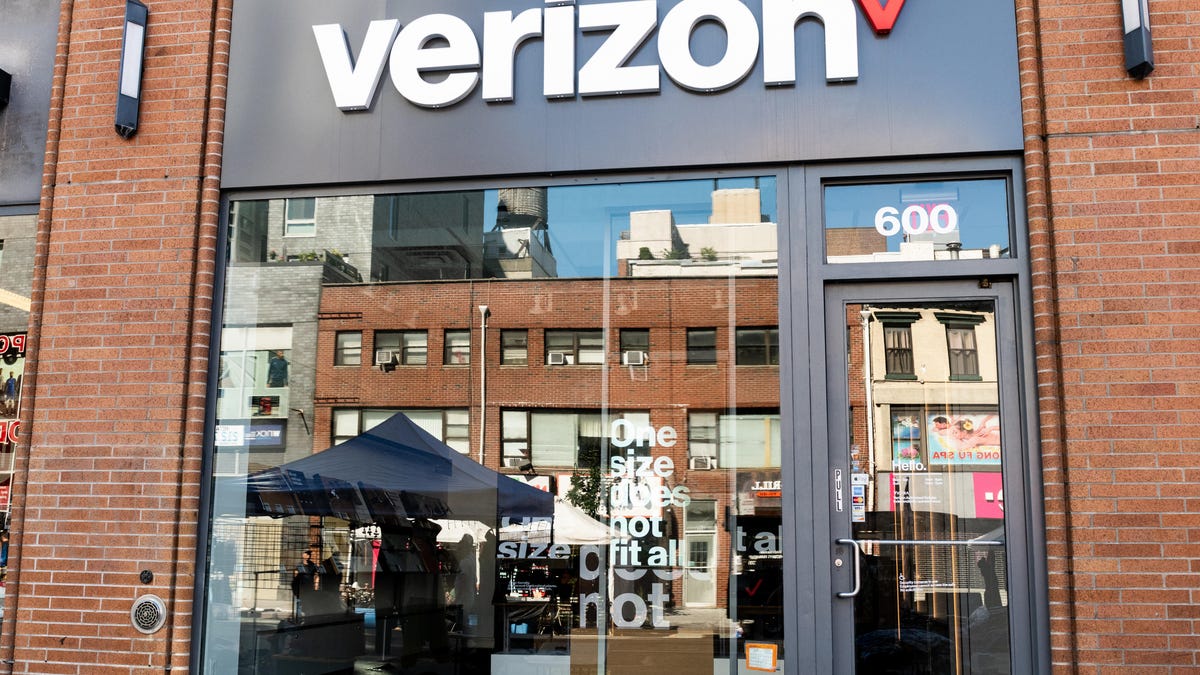Verizon wants to lock down phones to protect consumers
The carrier says 7,000 customers a month have their identities stolen by thieves who order new phones and sell them on the black market.

Verizon wants to lock phones to combat identity theft.
Verizon is asking the Federal Communications Commission for permission to lock new phones it sells in an effort to curb the growing problem of customer identity theft.
The nation's largest wireless carrier filed a petition with the agency on Friday asking the FCC to grant it a waiver so that it can start locking new phones it sells to consumers for a period of 60 days. This lock will prevent users from swapping out SIM cards and using the device on another network.
Verizon said it's taking this action to deter criminals who have been stealing customers' identities, ordering new phones under those names, and then reselling them on the black market. Unlocked phones are attractive targets for theft because they can easily be resold or used overseas with different carriers. This is a particular problem for high-end smartphones like the iPhone, which retail for more than $1,000 and retain their resale value.
Verizon says this is a huge and growing problem that cost the company $190 million in 2018. This figure was up from about $115 million in 2017. The company said more than 7,000 customers per month were affected by such thefts in 2018. In 2017, the company was seeing about 4,800 fraudulent phone sales per month in 2017.
"As a result of this activity, these customers have to deal with the inconvenience and hassle of identity theft, and Verizon sustains financial losses," Ronan Dunne, executive vice president and president of Verizon Wireless said in a blog post. "While we actively work with law enforcement to stop this growing trend, it's time that we take a stand to protect our customers."
Unlike other US wireless carriers, which lock their devices until customers fully pay for them, Verizon is required under FCC rules to sell all of its phones unlocked. This was the result of a deal Verizon struck with the FCC in 2008 when it licensed the "C block" of 700 megahertz spectrum, which powers its 4G LTE network.
The new policy should have "virtually no impact" on "legitimate customers' ability to use their devices," Dunne said.
"Almost none of our customers switch to another carrier within the first 60 days," he said. "Even with this limited fraud safety check, Verizon will still have the most consumer-friendly unlocking policy in the industry."
AT&T requires you to pay off your phone and be active on your service for at least 60 days. Even then, there's a 14-day wait after you make your request. Sprint also requires that you have paid off your phone and wait 50 days, though the phone is automatically unlocked. T-Mobile has the same paid device requirement and a 40-day wait period, but will offer to temporarily unlock the device sooner for travel.
Even after the policy goes into effect, Verizon will automatically unlock its phones after the 60-day period, regardless of whether the device has been paid off. The company will also still accept unlocked phones from other carriers.
The policy change could still inconvenience customers who buy a new phone and then go overseas. One way of saving on international roaming fees is to buy a SIM card from a local carrier. Verizon didn't address this scenario in its filing with the FCC.
This is not the first time Verizon has amended its phone lock policy to combat criminals. Last year, the company began locking all of its devices until those devices were activated on its network. This move, which didn't require FCC approval, was intended to stop phone thefts from Verizon stores, warehouses or during transport to points of sale. Verizon said last year that armed robberies were up more than 200 percent in 2017 over the previous year.

